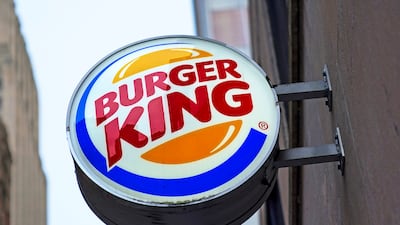Food ads have long made their subjects look bigger, juicier and crispier than they are in real life. But some consumers say those ads can cross the line into deception, and that is resulting in an increasing number of lawsuits.
Burger King is the latest company in the sights. In August, a federal judge in Florida refused to dismiss a class-action lawsuit that claims Burger King’s ads overstate the amount of meat in its Whopper burger and other sandwiches.
But Burger King is not the only one. Perkins Coie, a law firm that records class action suits, said 214 were filed against food and beverage companies in 2022 and 101 were filed in the first six months of this year. That is a big increase from 2010, when 45 were filed.
Pooja Nair, who represents food and beverage companies as a partner with the Beverly Hills, California-based law firm Ervin Cohen and Jessup, said waves of class action lawsuits started hitting federal courts a few years ago.
Some of the first were false advertising claims against snack chip makers for not completely filling the bags; most of those were dismissed, she said. Since 2019, hundreds of lawsuits have been filed asserting that consumers are being misled by “vanilla-flavoured” products that do not contain pure vanilla nor vanilla beans.
The case against Burger King was filed in Miami, where its parent company has its US headquarters.
Companies often settle cases before a lawsuit is filed instead of spending the time and money fighting it in court, Ms Nair said. This summer, A&W and Keurig Dr Pepper agreed to pay $15 million to settle claims they had deceived customers with the label, “Made with aged vanilla”, on cans of soda which used synthetic flavouring.
Others say growing consumer awareness is behind the trend: Social media can instantly make a photo of a soggy sandwich go viral, informing other potential plaintiffs, said Jordan Hudgens, the chief technology officer for Dashtrack, an Arizona-based company that develops restaurant websites.
Ben Michael, a lawyer at Michael and Associates in Austin, Texas, said inflation also might be making restaurants a target right now, since some may have cut back on portion sizes to reduce costs.
“Unfortunately, many businesses make these changes without consulting their marketing department or updating their menus to represent new portion sizes and ingredients,” he said. “This leaves them open to the kinds of lawsuits we’ve been seeing more of.”
In the Burger King case, plaintiffs in several states sued in March 2022, claiming that advertisements and photos on store menu boards show burgers that are about 35 per cent larger, with double the meat, than the burgers they purchased. The plaintiffs said they would not have bought the sandwiches if they had known the actual size.
A Burger King representative said the plaintiffs’ claims are false, and that the beef patties in its ads are the ones it serves across the US.
Ultimately, the Burger King case and others could cause companies to be more careful with their ads, said Jeff Galak, an associate professor of marketing at Carnegie Mellon University’s Tepper School of Business. But that could come at a cost as more realistic photos might lead to lower sales.
“There’s a legal line. When is it puffery and when is it deceit?” Mr Galak said. “Companies are always trying to ride right up against that line.”

